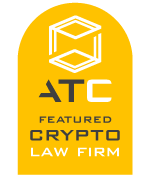
Decentralized Finance (DeFi) refers to any financial activity, from applying for a loan to trading stocks, which is built using decentralized ledger technology.
This is the same technology upon which Bitcoin and other digital assets/cryptocurrencies have allowed for peer-to-peer transfers of value, eliminating the need for banks and payment processors.
By leveraging this technology, developers can create applications that offer open source and transparent financial services that are available to anyone with an internet connection. This gives users full control over their assets and eliminates the need for any intermediaries by allowing individuals to make peer-to-peer transactions. DeFi also has the potential to reduce transaction costs and offer faster transaction speeds. The “immutable” nature of the Blockchain ledger means that all transactions are transparent and auditable.
As decentralized applications, DeFi is borderless and has no barriers to usage, except for local laws and regulations particular to each jurisdiction. Anyone with an internet connection can harness the power of DeFi; this is why it is important to seek legal advice when engaging in any activities involving decentralized financial technologies.
DeFi-ing the Odds
Despite a global pandemic, DeFi projects realized billions of dollars of value this year. Proponents of DeFi declare that this is just the beginning and are rallying to the call of the democratization of financial services, while doubters warn of a bubble ready to burst. Regardless of your opinion, DeFi has already made a lasting impression in the world of finance.
DeFi’s recent popularity will likely pique the interest of regulators, which will seek to impose limitations on DeFi activities. This is another reason why it is important for DeFi entrepreneurs and investors to seek legal advice when venturing into this space.
There are many legal and accounting issues which expose people involved in DeFi applications to liability. Chief among those issues is the difficulty in determining the appropriate jurisdiction and therefore the applicable structure, laws and regulations given the decentralized nature of DeFi. Having the right team in place to spot these issues is key to the success of any such project. While we wait for regulators to embrace the innovative potential that DeFi promises to offer, entrepreneurs, investors and users continue to push the technology forward in order to create a more open, less concentrated and less centralized banking and financial system.
The lawyers at Grinhaus Law Firm are leading experts on the legal and regulatory issues related to Decentralized Ledger technology and regularly advise on the issues relating to such projects. For more information on this topic, call or email us to see how we can help.
PLEASE NOTE: THIS IS NOT INTENDED TO BE LEGAL ADVICE AND SHOULD NOT BE RELIED ON AS SUCH. IT IS IMPORTANT THAT YOU CONSULT WITH A LICENSED PROFESSIONAL.



